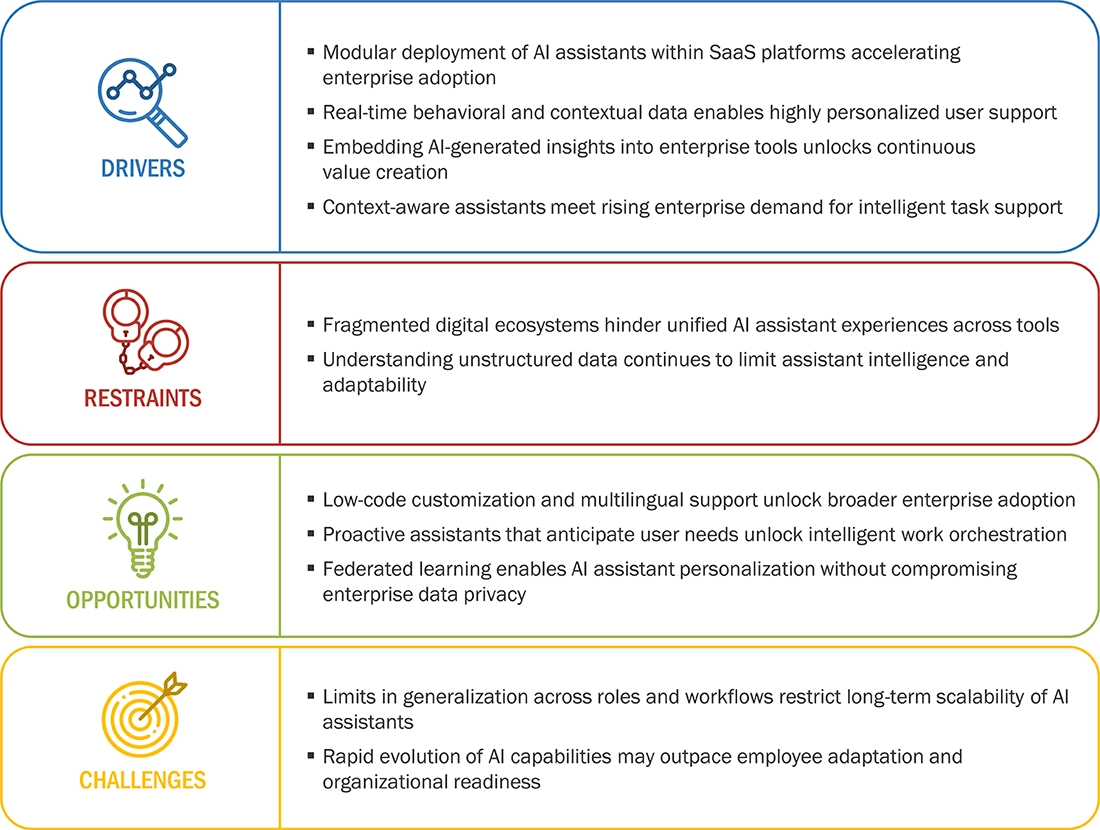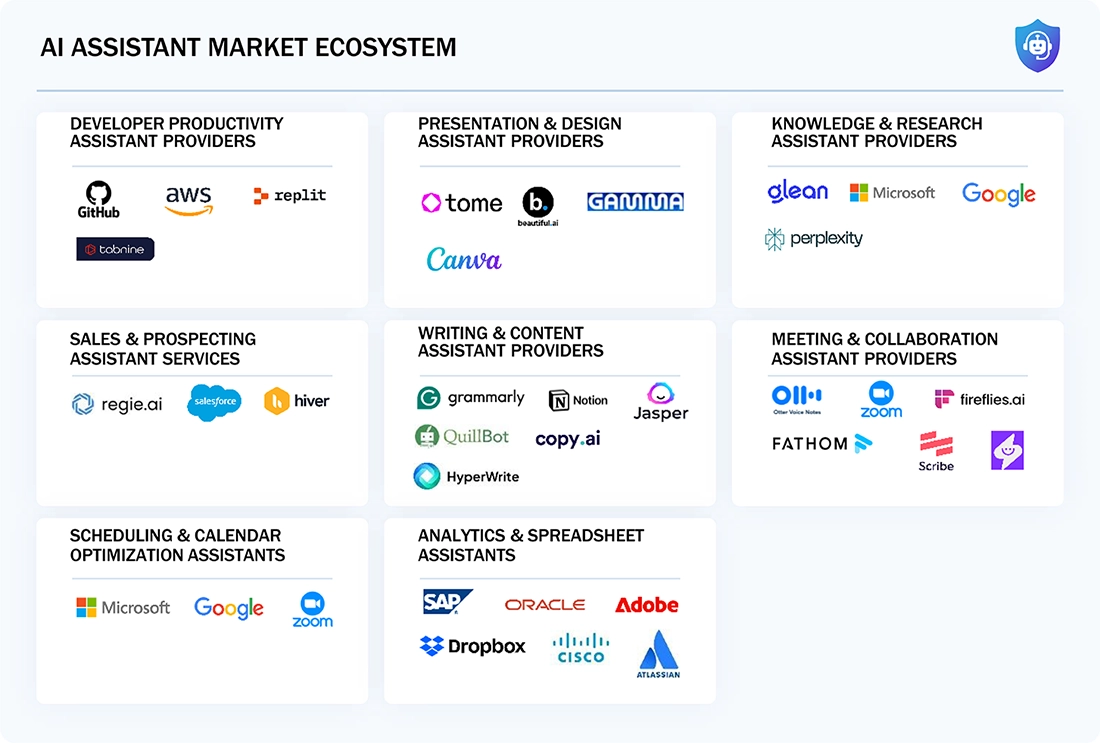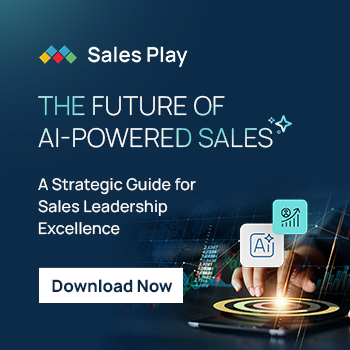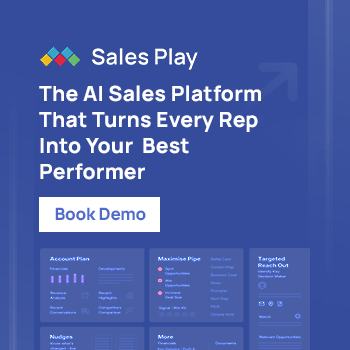What is an AI Sales Assistant
An AI sales assistant is an intelligent software solution powered by artificial intelligence and machine learning that automates and enhances various sales activities throughout the customer acquisition funnel. These AI-powered tools handle time-consuming tasks like lead qualification, outreach, follow-ups, and data entry, enabling sales teams to focus on high-value relationship-building and deal closing.
How AI Sales Assistants Work
Modern AI sales assistants leverage several advanced technologies to transform sales operations:
- Natural Language Processing (NLP) - Understands and generates human-like communication for emails, chats, and responses
- Machine Learning - Continuously improves performance by learning from historical sales data and outcomes
- Predictive Analytics - Forecasts lead conversion probability and identifies high-value opportunities
- Automation - Executes repetitive tasks like scheduling, data entry, and follow-up sequences without human intervention
Ready to turn your Rep
INTO BEST PERFORMER ?
Why Sales Teams Need AI Sales Tools in 2026
Sales representatives spend only 25% of their time actually selling to customers. The remaining 75% gets consumed by administrative work, research, and manual data entry. AI sales assistants solve this productivity crisis by handling up to 65% of these time-consuming administrative tasks.
Key Insight: Sales teams using AI sales assistants experience a 50% boost in lead generation and customer retention while reducing time spent on administrative tasks by 40%. These aren't marginal gains—they represent fundamental transformation in how sales organizations operate.
Key Capabilities & Features
Understanding the core capabilities of AI sales assistants helps you identify which features deliver the most value for your specific sales process.
Sales AI Assistant Features
1. Intelligent Lead Scoring
AI-powered lead scoring analyzes hundreds of data points simultaneously—far beyond what manual methods can achieve. These systems evaluate behavioral signals, demographic data, firmographic information, and historical conversion patterns to assign accurate priority scores.
Benefits of AI lead scoring:
- 25% increase in conversion rates
- 60% reduction in manual verification time
- 30% improvement in decision-making accuracy
- Real-time score adjustments based on new prospect actions
2. Automated Outreach & Follow-ups
One of the most impactful features of an automated sales assistant is consistent, timely communication. Research shows 80% of sales require five or more follow-ups, yet only 8% of salespeople make it past the fifth attempt. AI eliminates this limitation entirely.
AI-driven outreach capabilities include:
- Instant engagement when prospects show interest
- Personalized messaging based on prospect behavior and preferences
- Multi-channel communication (email, chat, SMS, social media)
- 24/7 availability across all time zones

Spot Pipeline BeforeYour Competitors Even Know It Exists

3. Conversation Intelligence
Advanced AI sales tools record, transcribe, and analyze sales conversations to identify successful patterns. Systems provide insights into talk-to-listen ratios, sentiment analysis, competitor mentions, and objection handling effectiveness.
4. Predictive Forecasting
AI SDRs equipped with predictive analytics can forecast sales outcomes with remarkable accuracy. Leading platforms achieve 98% forecast accuracy by the second week of each quarter by analyzing deal progression signals and historical data patterns.
5. Meeting Intelligence
AI meeting assistants automatically generate summaries, extract action items, and provide preparation insights by pulling relevant data from CRM records. This feature reduces meeting prep time by 33% while ensuring no critical details get missed.
6. Content Personalization
AI sales assistants analyze prospect data to recommend the most relevant content at each stage of the buying journey. This capability increases engagement rates and shortens sales cycles by delivering the right message at the right time.
Best AI Sales Assistant Tools & Software: Core Requirements
When evaluating AI sales tools, prioritize these essential capabilities:
- ✅ CRM Integration - Seamless data flow with Salesforce, HubSpot, or your existing CRM
- ✅ Customization - Ability to adapt to your specific sales process and messaging
- ✅ Scalability - Grows with your team without performance degradation
- ✅ Ease of Use - Intuitive interface that sales reps can adopt quickly
- ✅ Analytics & Reporting - Actionable insights to optimize sales strategies
- ✅ Multi-channel Support - Communication across email, phone, chat, and social platforms
Top AI Sales Assistant Tools You Can Use in 2026
In today's crowded marketplace, choosing the right AI sales assistant can make the difference between missed opportunities and increased revenue. Here's a comprehensive look at eight leading AI-powered tools positioned to transform sales operations in 2026.
1. Salesforce Einstein
Salesforce Einstein serves as a personal AI coach that combines generative and predictive capabilities built directly into your CRM. Its autonomous Agentforce feature efficiently nurtures inbound leads, handles early funnel activities, and transitions qualified leads to human sellers.
Best For: Large enterprises with existing Salesforce infrastructure seeking comprehensive AI capabilities
Key Features: Auto-generated personalized emails, call summaries, customized action plans, 33% faster meeting prep, 10% increase in win rates
2. HubSpot Sales Hub
HubSpot's AI-guided selling software helps representatives find high-value opportunities and determine next best actions. Its AI sales assistant, Breeze, identifies prospects showing buyer intent on your website and creates personalized outreach based on business needs.
Best For: Mid-market companies and growing businesses looking for an all-in-one sales platform
Key Features: AI meeting assistant, sales workspace integration, intuitive interface, reduced manual effort
3. SalesPlay
SalesPlay is the world's first AI Sales Intelligence platform featuring 7 specialized AI Agents that transform sales execution. Unlike competitors offering fragmented data, SalesPlay delivers pitch-ready opportunity ecosystems—hyper-personalized sales kits, mapped buying centers, and conversion-ready outreach sequences.
Best For: Organizations seeking competitive intelligence and 3x productivity gains with exclusive market data
Key Features: 7 AI agents, eliminates 80% of manual work, built on MarketsandMarkets intelligence, exclusive vendor partnerships
4. Conversica
Conversica provides AI SDRs that deliver two-way conversations throughout the sales funnel with 98% accuracy—higher than human performance. The platform connects easily with CRM systems, keeping all lead information centralized without manual data entry.
Best For: Sales teams focused on lead follow-up and uncovering hidden opportunities
Key Features: 98% conversation accuracy, automated follow-up, seamless CRM integration, finds money left on the table
5. 6sense
6sense combines AI-powered insights with intelligent agents to make every go-to-market motion smarter. Sales Copilot directs sellers to the best opportunities while automating personalized outreach at scale.
Best For: B2B organizations requiring account-based marketing integration with sales intelligence
Key Features: Account data modeling, tailored scoring, saves 1,098 hours of BDR time through AI email agents
6. Clari
Clari Forecast helps revenue teams predict and manage growth with remarkable accuracy. Its AI-powered insights combine past deal data with current signals to achieve 98% forecast accuracy by the second week of each quarter.
Best For: Revenue operations teams needing precise forecasting and pipeline visibility
Key Features: 98% forecast accuracy, scenario modeling, works across subscription and consumption models
7. Fireflies.ai
Fireflies.ai serves as an AI teammate for meetings, transcribing conversations with 95% accuracy across 100+ languages. Beyond transcription, it summarizes key points, extracts action items, and enables topic tracking across all sales calls.
Best For: Teams seeking conversation intelligence and meeting productivity improvements
Key Features: 95% transcription accuracy, 100+ languages, sentiment analysis, conversation metrics
8. Regie.ai
Regie.ai positions itself as the world's only AI SEP (Sales Engagement Platform), combining sales engagement, parallel dialing, enrichment, and intent data in a single platform. AI agents handle research, writing, and lead prioritization.
Best For: Sales development teams focused on scaling personalized outreach
Key Features: Contextually relevant content generation, maintains brand voice, removes common roadblocks
Tool Comparison by Team Size
| Team Size | Recommended Tools | Starting Price Range | Key Benefit |
|---|---|---|---|
| Small Businesses (1-10 reps) | HubSpot Sales Hub, Fireflies.ai, Conversica | $450 - $2,500/month | Easy implementation, quick ROI |
| Mid-Market (10-100 reps) | 6sense, Regie.ai, SalesPlay | $2,500 - $7,000/month | Scalability, advanced features |
| Enterprise (100+ reps) | Salesforce Einstein, Clari, 6sense | $7,000 - $20,000+/month | Enterprise-grade security, customization |

How to Evaluate & Implement
Selecting the right AI sales assistant requires careful evaluation of several critical factors. With 71% of sales teams considering ease of use a top priority, making the right choice involves more than just comparing features.
Integration with Your CRM and Tech Stack
The effectiveness of any AI sales tool depends on how well it connects with your existing systems. Your AI solution must sync seamlessly with CRM platforms, ERP systems, and other sales tools.
Consider these essential integration capabilities:
- Open APIs and custom integration options to facilitate smooth data flow
- Ability to pull data from and push insights into a central repository
- Compatibility with your existing CRM (Salesforce, HubSpot, Microsoft Dynamics, etc.)
- Real-time data sharing between sales tools and your CRM
Customization and Scalability
Every business has unique sales processes and requirements. Your automated sales assistant should adapt to your specific needs rather than forcing you to change established workflows.
When evaluating customization options, examine whether the AI tool:
- Can be trained with your own customized playbooks
- Adapts to your specific company's sales process
- Offers flexible customization of workflows, lead scoring models, and dashboards
- Allows modifications to reporting tools to fit your sales processes
Your tools should scale as your business grows. Look for platforms with flexible pricing plans that can accommodate increases in headcount and client base without compromising performance.
Ease of Use and Onboarding
The most sophisticated AI SDR will deliver minimal value if your team struggles to use it effectively. User-friendly interfaces and intuitive navigation are critical factors.
During your evaluation process, pay special attention to:
- Simple interfaces that provide clear insights
- Customizable dashboards that match your sales processes
- Thorough support resources including extensive guides and training modules
- Onboarding processes that prepare your team for success
Implementation Tip: Take an incremental approach. Start with pilot groups, outline success metrics aligned to revenue goals, and test tools over 3-6 months to gauge effectiveness before full deployment.
Pricing Models and ROI Considerations
| Pricing Model | How It Works | Average Cost | Best For |
|---|---|---|---|
| Per-Execution | Charges per task completed | Varies by workflow | Simple automations, early-stage use |
| Usage-Based | Billed on compute time/API calls | $500 - $2,500/month | High-volume operations |
| Outcome-Based | Pay when specific results achieved | $7,000/month | Revenue-linked operations |
| Per-Conversation | Based on AI-to-human interactions | $20,000/month | Customer support functions |
ROI Expectations: For every $1 invested in AI sales assistants, organizations realize an average return of $3.70. Companies implementing these tools report 10-15% increase in sales and 20-25% boost in marketing ROI.
Benefits of AI Sales Assistants
The implementation of AI sales assistants delivers measurable advantages that directly impact revenue growth. Companies using these tools report improvements that add up to more than a 30% increase in win rates throughout the selling funnel.
Faster Response Times
Speed has become non-negotiable in modern sales environments. Research demonstrates that businesses responding to leads within the first hour are seven times more likely to qualify those leads. Yet most companies fall dramatically short, with average response times hovering around 47 hours.
AI sales assistants eliminate this gap by engaging prospects instantly. When a potential customer shows interest, these tools immediately initiate communication through various channels including email, chat, or SMS.
This rapid response capability creates several advantages:
- 10x improvement in lead qualification success compared to responses after five minutes
- Continuous 24/7 availability, ensuring no opportunity is missed regardless of time zone
- Consistent messaging that maintains brand voice across all interactions
- 21% more likely to progress leads through the pipeline with fast engagement
Improved Lead Qualification
Perhaps the most significant impact of AI sales tools comes from their ability to accurately identify high-value prospects. Traditional lead qualification often misses opportunities or wastes time on poor-fit prospects.
AI-powered qualification delivers remarkable improvements:
- Reduction in manual scoring time from 2 hours to just 2-3 minutes per prospect
- Identification of 40% more qualified opportunities through advanced signal analysis
- Improvement in qualification accuracy from 15-25% (manual) to 40-60% (AI methods)
- 8x faster qualification process based on 50+ qualification factors
- 60% higher lead-to-opportunity conversion rates
- 25% shorter time from lead to closed deal
STOP CHASING PROSPECTS
START CLOSING DEALS!!
Better Sales and Marketing Alignment
Historically, poor alignment between sales and marketing teams has undermined business performance. AI SDRs bridge this gap by creating a unified view of customer interactions.
The impact is substantial:
- Companies with strong sales and marketing alignment close deals 73% faster
- 50% increase in win rates with proper alignment
- 34% increase in revenue growth for organizations implementing AI for alignment
- High-performing teams using AI are 1.5x more likely to lead their industries in revenue generation
Bottom Line: AI sales assistants don't just save time—they fundamentally transform how sales organizations operate, leading to higher conversion rates, shorter sales cycles, and increased revenue across the board.

Best Practices for Implementation
Successful AI sales assistant implementation hinges on three core elements: proper preparation, effective team training, and continuous performance monitoring.
Preparing Your Data and Workflows
The quality of your AI system depends entirely on the quality of your data. AI follows the "garbage in, garbage out" principle—even sophisticated models produce poor results with bad data.
Prior to implementation:
- Conduct a thorough audit of all internal and external data sources
- Standardize data collection procedures across your organization
- Ensure CRM data is accurate, well-organized, and properly labeled with minimal gaps
- Establish clear, measurable goals for your AI sales tools
- Map your current processes to identify redundancies and areas suitable for automation
Remember that 46% of top sellers use CRM systems daily compared to just 31% of their peers. Consistent data input is essential for AI effectiveness.
Training Your Team
Securing team buy-in remains vital for successful implementation. Sales managers play a crucial role in encouraging adoption, presenting AI as a tool to drive success rather than a burden.
As you begin training:
- Start with pilot groups and test over 3-6 months
- Outline success metrics aligned with revenue goals
- Provide comprehensive resources including guides and training modules
- Address potential resistance head-on with clear communication
- Implement clear processes that make CRM engagement mandatory for consistency
Monitoring Performance and Adjusting
After deployment, establish monitoring systems to track AI performance against established goals. An AI SDR implementation requires ongoing supervision—it's not a "set-it-and-forget-it" solution.
Key monitoring activities:
- Gather feedback from sales representatives who use the tools daily
- Track key performance indicators continuously
- Implement business rules that require sellers to comply for data accuracy
- Make adjustments based on performance data and user feedback
Through careful monitoring, companies report saving up to two hours daily on administrative tasks, allowing sales teams to focus on relationship building.
Future of AI in Sales
The horizon for AI sales assistants keeps expanding with innovations that will reshape how businesses connect with customers. Looking beyond current capabilities, several forward-looking developments demand attention.
Emerging Trends Like Emotion Detection and NLP
Natural Language Processing (NLP) continues to advance rapidly, with sentiment analysis now detecting subtle emotional cues in customer communications. Future AI sales tools will recognize buying signals through tone analysis and respond appropriately to customer emotions.
Currently, 31% of organizations report implementing emotion AI technologies, with another 46% planning deployment within the next year. This capability will enable AI assistants to adjust messaging in real-time based on prospect emotional states.
The Rise of Autonomous Sales Agents
AI SDRs are evolving from assistants to independent actors in the sales process. These systems increasingly handle entire sales conversations without human intervention, managing objections and tailoring pitches automatically.
However, research shows 41% of buyers still prefer human interaction for complex purchases, suggesting a hybrid approach remains optimal. The most successful implementations will blend AI efficiency with human relationship-building where it matters most.
Balancing Automation with Human Touch
Perhaps most critical, successful sales organizations recognize where automated sales assistants excel and where human relationships remain essential. The most effective approach combines AI efficiency with human empathy—what leading researchers call "human-AI collaboration."
The optimal balance:
- AI handles 47% of repetitive tasks and initial lead engagement
- Human sellers close 73% more deals when they personally engage with qualified leads
- AI provides insights and recommendations, humans make final decisions
- Continuous evaluation of which process components benefit most from automation versus human expertise
As these technologies mature, sales leaders must thoughtfully integrate AI capabilities while preserving the human elements that build trust and close complex deals. This balanced approach ultimately creates experiences that satisfy both operational efficiency needs and customer relationship expectations.
Frequently Asked Questions
What is an AI sales assistant?
An AI sales assistant is intelligent software powered by artificial intelligence that automates sales activities like lead qualification, outreach, follow-ups, and data entry. These tools use machine learning, natural language processing, and predictive analytics to help sales teams focus on high-value relationship-building while automating up to 65% of administrative tasks.
How do AI sales assistants improve lead qualification?
AI sales assistants analyze hundreds of data points simultaneously, including behavioral signals, demographic data, and historical conversion patterns. This results in 25% higher conversion rates, 60% reduction in manual verification time, and 40-60% qualification accuracy compared to 15-25% with manual methods.
What are the best AI sales assistant tools for 2026?
Top AI sales assistant tools include Salesforce Einstein, HubSpot Sales Hub, SalesPlay, Conversica, 6sense, Clari, Fireflies.ai, and Regie.ai. The best choice depends on your team size, budget, and specific needs. Small businesses benefit from tools like HubSpot or Conversica, while enterprises typically choose Salesforce Einstein or 6sense.
How much do AI sales assistants cost?
AI sales assistant pricing varies by model: per-execution pricing for simple automations, usage-based pricing from $500-2,500/month for high-volume operations, outcome-based pricing around $7,000/month, and per-conversation pricing at $20,000/month for customer support functions. ROI averages $3.70 for every $1 invested.
Can AI sales assistants integrate with existing CRM systems?
Yes, most modern AI sales assistants offer seamless CRM integration with platforms like Salesforce, HubSpot, and Microsoft Dynamics. Look for tools with open APIs, real-time data synchronization, and unified platform capabilities to ensure smooth data flow across your tech stack.
What ROI can I expect from implementing an AI sales assistant?
Companies implementing AI sales assistants report 50% increases in productivity, 30% higher win rates, 10-15% increase in sales, 20-25% boost in marketing ROI, and 25% shorter sales cycles. Sales teams using AI-recommended activities see win rates increase by up to 50%.
How long does it take to implement an AI sales assistant?
Implementation typically takes 3-6 months for full deployment. Best practice is to start with a pilot group, establish success metrics, and gradually expand after validating results. Proper data preparation, team training, and ongoing monitoring are essential for successful implementation.
Will AI sales assistants replace human sales representatives?
No, AI sales assistants are designed to augment human capabilities, not replace them. AI handles repetitive tasks and provides insights, while human sales professionals focus on relationship-building, complex negotiations, and closing deals. Research shows 41% of buyers still prefer human interaction for complex purchases.
STOP GUESSING YOUR PIPELINE
START GROWING IT WITH AI SALES!!
Conclusion
Selecting the right AI sales assistant stands as a critical decision that can transform your entire sales process. Throughout this comprehensive guide, we've explored how these powerful tools handle time-consuming tasks while freeing your team to focus on building relationships and closing deals.
AI sales assistants clearly deliver measurable benefits across the entire sales funnel—from instant lead engagement to accurate scoring, faster response times, and improved alignment between sales and marketing. The right solution integrates seamlessly with your existing tech stack while offering customization options that match your specific business needs.
Key takeaways to remember:
- AI sales assistants can increase team productivity by 50% and boost win rates by 30%
- Different tools serve different needs—choose based on team size, budget, and requirements
- Successful implementation requires clean data, proper training, and ongoing monitoring
- The future of sales combines AI efficiency with human relationship-building skills
- ROI expectations average $3.70 for every dollar invested in AI sales technology
While examining the top AI sales tools available in 2026, we discovered various options suited for different team sizes and budgets. Small businesses might benefit from more accessible tools like HubSpot or Fireflies.ai, whereas enterprise organizations typically require robust platforms such as Salesforce Einstein or 6sense.
Looking ahead, AI sales tools will continue evolving with advanced capabilities like emotion detection and autonomous selling. Nevertheless, the most effective approach will balance AI efficiency with human relationship-building skills—creating a hybrid model that leverages the strengths of both.
Final Thought: The ultimate goal isn't merely automating tasks—it's enhancing your entire sales process to drive revenue growth. Choose wisely, implement thoughtfully, and your AI sales assistant will become an invaluable asset in your journey from lead scoring to closing deals.
Ready to Transform Your Sales Process?
AI sales assistants are revolutionizing how modern sales teams operate. With the right tool and implementation strategy, your team can achieve 50% productivity gains and 30% higher win rates.




